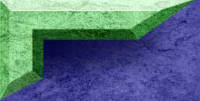THE ESSENCE OF STUDYING CHEMISTRY HAVE FAITH, STUDY HARD, THINK.
You may be a very good student but yet you may encounter difficulty in learning
chemistry. Why is this so? The reasons seem to be that the study of chemistry requires new attitudes, new approaches, new
modes of thinking, and new study habits not used in non-scientific courses. [This may be the reason why competitive colleges
and universities require that you take a high school chemistry and/or physics course].
The teaching and learning of chemistry are acts of faith. You must have faith
in your teacher...,[but the real faith lies within you].
This faith in yourself must be translated into real intellectual effort. You
must be willing to accept the academic challenge. Learning chemistry is hard work and takes time. Learning chemistry is an
active pursuit that requires concentration, discipline, patience, persistence,
and practice. To be concentrated means to devote full attention to the task at hand while blocking out many things that cause
distraction. To be disciplined means to plan your study and to keep your plan of study. Do not take shortcuts. Stay with the
methods that work best for all of us: be disciplined, concentrate, be persistent, practice much, study hard. These are the
ways that ensure success in the study of chemistry.
Think. To think means to meditate; to reflect upon; to consider a matter; to
imagine; to reason; to determine a solution to a difficulty; to exercise powers of judgment, conception, or inference; to
reflect for the purpose of reaching a conclusion; to have or form a mental picture. To be successful in the study of chemistry
you must think.
STUDY FREQUENTLY AND DO PROBLEMS
Try to study chemistry nearly everyday. Make problem solving a part of every
study session. Study by yourself most of the time. You may follow-up your independent study by studying with a friend. Occasionally,
studying in a small group may be beneficial, provided that you do your own studying beforehand. One student of the group may
act as lecture [or explain his/her understanding of the material], presenting and discussing the material while other students
contribute information from time to time. Then roles may be reversed. [Each student may present a section of the chapter he/she
is comfortable with. It has been said, you never truly know something unless you can explain it to another person].
ASK QUESTIONS AND GET HELP FROM YOUR INSTRUCTOR
Be curious. Ask questions during lecture. Specific questions are best. Avoid
asking broad questions in class. Reserve broad questions for a private meeting with your instructor. After class, seek help
and advice from your instructor. Go to him or her as often as needed. Prepare in advance a list of questions to be asked and
problems to be solved.
ALEVIATE ANXIETY
Most scientific textbooks look formidable. The size, and more so, the content
of your new chemistry textbook may cause you to generate fear and anxiety, particularly so if you think that you are not scientifically
minded. You might ask, How could I hope to learn all this? The cliché first-things-first seems appropriate here. General chemistry
is presented in a logical manner- the simpler methods and concepts precede the more complex ones. You gradually build upon
existing knowledge at each stage of your study. This manner of learing [sic] chemistry requires that you keep abreast of the
lecturing by attending[all classes] and by studying chemistry nearly every day. As you learn more and more, your chemical
intuition and confidence will increase.
REFINE YOUR UNDERSTANDING OF TOPICS THROUGH REPETITIVE STUDY
Repetition is necessary for learning chemistry. Few students are so expert
that they can learn it all the first time around. That your study requires considerable repetition is not a sign of your inadequacy
but is a necessary method for learning chemistry. With a critical mind, go over the material again and again Each time you
do so, you refine your understanding of the topic. Through repetitive study many facts, concepts, and methods will be committed
to memory. Much will become second nature to you.

